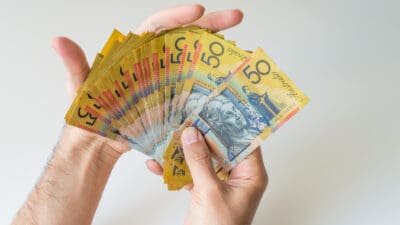Stock market crashes are a reality of investing. There are many strategies investors use to deal with a market crash in order to ensure the minimum amount of damage to their portfolios. With that in mind, I'm going to talk about three things that investors should avoid doing if a bear market rears its head.
It's not surprising that share prices change a lot every week. After all, there are different buyers and sellers every day, with different views and motivations for their share transactions.
Sometimes a worrying event will pop up that causes a major sell-off of most of the market. But just because there's some volatility doesn't mean we need to panic.
Don't indiscriminately sell holdings
It's never a good feeling to see our portfolios take a significant hit. But, we shouldn't decide to sell just because share prices have dropped.
The share market's job is to offer a price for us to buy or sell our shares, we don't need to do anything with that offer.
When we think about all of the previous stock market crashes, we've seen a recovery after a period of time. The GFC recovery took longer to recover from than the COVID-19 crash, but with both times the share market has gone back up again.
We can't say for sure what will happen after the next crash, but I think it pays to have confidence that many businesses will get back to a normal valuation afterwards. By selling, the investor might miss out on the recovery.
If investors have to sell their shares at low prices for an essential reason (such as healthcare), then it's unavoidable. There may also be an argument for possibly selling something to buy an even better opportunity. But, I'd avoid indiscriminately selling just because there's a stock market crash.
Don't avoid buying during a stock market crash
As I alluded to in the first section – a bear market is typically a bad time to sell.
But, a crash could be a great time to buy for investors. Look at the price chart of Macquarie Group Ltd (ASX: MQG) shares since the GFC.
Since the low of the GFC crash, Macquarie has risen around 1,000%, and since the COVID-19 low it's gone up by more than 100%.
Stock market crashes can end up being when the most attractive prices are on offer for sectors like ASX bank shares and ASX retail shares.
Even just loading up on exchange-traded funds (ETFs) could be a great move.
Part of good investing and generating returns is all about buying at a good price and then benefiting from the rise.
Don't 'doom scroll'
When a stock market crash is happening, there's normally a logical reason for it. The reporting during the GFC stock market crash made it seem like capitalism could end, while the reporting during COVID-19 seemed disastrous for the planet as well.
While those were very real issues, and worthy of being reported, it's probably not a good idea to spend much time constantly reading about the latest bad thing that has happened or might happen. Not only is that probably bad for our mental health, but it could also influence people to indiscriminately sell their shares and/or not invest.









